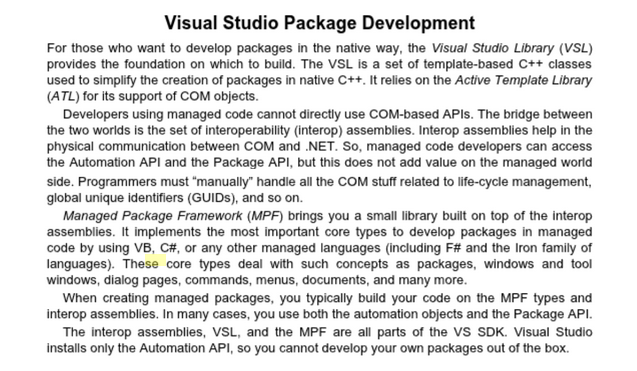
Recently I found the above displayed Visual Studio Extensibility Platform chart from microsoft.
Most of the things are clear to me. However, I am wondering about the Package API and the VSL (Visual Studio Library).
I tried to find more, but was not able to find any information.
Things I do not quite understand:
- What exactly is the Package API?
- What exactly is the VSL?
- What is the relation between the InteropAssemblies/ VSL and the Package API? Do the InteropAssemblies wrap the access to the Package API?
- Why should one use the VSL when implementing a native package? What are the benefits?
Does anybody have more information about these subjects or does somebody know some resources?

